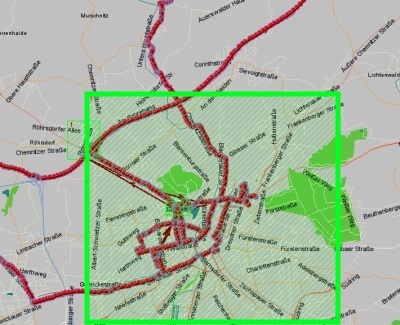
May 31, 2016; Fortune
These days, when you download an app, it is fairly commonplace to be asked to enable location services on your cell phone. At times, you may have wondered why, say, an app for your grocery store really needs to know where you are located, but chances are you went ahead and allowed it. Location data permits marketers to take advantage of a tool known as geofencing. Geofencing is a service that enables a company to define a virtual perimeter—the “fence” in geofence—around a real location. The software then uses GPS data to send an alert to contacts that have entered (or exited) the fence.
Since its inception, some great, albeit borderline creepy, uses for geofencing have been discovered, many of which are centered on marketing. For instance, large companies can target local shoppers, and along the same lines, deals can be specialized by location. Some companies, such as Retail Me Not, use the service to send coupons to users once they have entered the geofence perimeter. The overall idea has been that once companies know how individuals shop, they can offer a more tailored experience. In terms of the nonprofit world, several uses have been identified. Two options that are popular include instant check-in at fundraising events upon entry in the geofence and keeping track of a nonprofit’s most expensive assets (i.e., alerts that indicate when computers, cars, etc. have left the geofence).
Unfortunately, an issue arises when organizations use location data in a method that invades the privacy of its consumers in more intimate ways. This is the case with Copley Advertising, whose CEO, John Flynn, has decided to use location-based ad services to reach women who are deemed “abortion-minded.” Flynn’s campaigns can send targeted propaganda to women while they are in the clinic waiting to have an abortion or seeking more information. Since advertising this package, Flynn has been getting much attention from the anti-abortion world; he was hired by RealOptions and Bethany Christian Services to run ad campaigns and was later invited to speak at the Family Research Council’s ProLifeCon Digital Action Summit.
Bethany Regional Marketing Manager Jennie VanHorn commented, “Marketing for pregnancy help centers has always been a needle in the haystack approach—cast a wide net and hope for the best. With geofencing, we can reach women who we know are looking for or in need of someone to talk to.”
Not all pro-life groups support Flynn’s endeavors, however. One representative said, “I felt disgust, and I felt protective of these women who are going to seek sensitive medical services at a time when they’re vulnerable. They’re being spied on by this capitalist vulture who is literally trying to sell their fetuses. To do this to women without consent is predatory and it’s an invasion of her privacy, and unethical.”
Sign up for our free newsletters
Subscribe to NPQ's newsletters to have our top stories delivered directly to your inbox.
By signing up, you agree to our privacy policy and terms of use, and to receive messages from NPQ and our partners.
Therein lies the crux of the debate. Aside from the issue of reproductive rights, the question is how location data can be used ethically. How far is too far?
Although the technology is receiving a lot of attention now, it has been around for decades. Unfortunately, even given this long history, there are only two laws that govern the use of location data—the Electronic Communications Privacy Act of 1986 and the Communications Act of 1934—but several consumer rights bills are being drafted.
In terms of medical information, in the case of anti-abortion groups, Chris Hoofnagle, a University of California, Berkeley School of Law professor, indicates that the law wouldn’t apply. He says, “Privacy law in the U.S. is technology and context dependent. As an example, the medical information you relay to your physician is very highly protected, but if you go to a medical website and search for ‘HIV’ or ‘abortion,’ that information is not protected at all.”
The Federal Trade Commission can ensure that advertisers are not misleading consumers, but they don’t hold jurisdiction over nonprofit organizations, and as long as a privacy policy indicates that data may be released to third-party advertisers, all legal accountability has been met. Thus, when that prompt appears asking if users would like to enable location services, once they hit “I agree,” they potentially opt in to releasing this information to third party advertisers and open themselves up to being targeted for ad campaigns such as Flynn’s.
While the debate goes on, what can consumers do to protect themselves from unwanted and invasive advertisements? For starters, read privacy policies carefully. If there truly is no need for an app to know your location, do not enable location services. Or, enable location services only when you need them. Another option would be to simply leave your smartphone at home when going to places such as an abortion clinic, as long as it is practical to do so.
Cooper Quintin, a technologist at the Electronic Frontier Foundation, which focuses on protecting basic rights in the face of new technology, considers location-based services to be a major privacy threat. He says, “The way we need to fight back against this is by blocking those things that are tracking who we are and where we are and what thing we’re looking at.”—Sheela Nimishakavi













